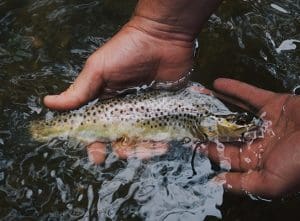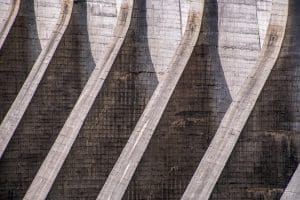 Water Rights
Water Rights
In their 2013 lawsuit, the Agua Caliente Band of Cahuilla Indians claimed that the Desert Water Agency and the Coachella Valley Water District had infringed upon their rights by over-pumping groundwater from the Coachella Valley’s aquifer in southern California.
The landmark case determined that the tribe has reserved rights to the aquifer below the reservation’s land, dating back to the federal government’s creation of the reservation in the 1870s. However, other key parts of the case were dismissed in April of this year by a U.S. District Court Judge who ruled that the tribe did not have a claim of harm because it always had enough water, and the water met applicable water-quality standards.
Now the federal government is urging the judge to reconsider and intends to make its case that the ruling should be reversed. A hearing is scheduled for August 19. If the Agua Caliente tribe wins, one of its priorities would be to start treating the Colorado River water that flows to the Coachella Valley and is used to replenish the aquifer.
 Fishing Rights
Fishing Rights
In 2016, after the Washington State Department of Fish and Wildlife (WDFW) illegally seized and destroyed four totes of their shellfish bait, Tulalip Indian fishermen Hazen Shopbell and Anthony Paul went to court. Earlier this month, the Skagit County Superior Court Judge terminated felony cases against both fishermen after finding that the WDFW violated their constitutional rights by seizing and destroying over a thousand pounds of Tulalip Treaty harvested bait clams without a search warrant.
The judge also considered Shopbell’s arguments that Skagit County’s prosecution violated the Point Elliott Treaty and landmark Boldt Decision, United States v. State of Wash. Skagit County immediately appealed the decision to the Washington Court of Appeals.
In November 2018, Shopbell and Paul filed a federal civil rights lawsuit against WDFW alleging that they “have levied a full-fledged assault under the guise of a criminal investigation,” with the intent of attacking Indian Treaty fishing and destroying “intra-tribal and inter-tribal Treaty fish distribution and commerce.” The federal civil rights case is set for trial in October 2020.
 Water Quality
Water Quality
The Nez Perce Tribe, along with environmental groups Pacific Rivers and Idaho Rivers United, are confronting Idaho Power Company’s attempt to relicense its three-dam Hells Canyon Complex. Their lawsuit challenges Oregon’s water quality certification of the dams for what they say is a failure to provide fish passage and adequately ensure water quality standards for temperature and mercury.
The tribe secured its rights to resources in this area in the Nez Perce Treaty of 1855. The dams are within the tribe’s historic territory and tribal members once fished for salmon, steelhead, Pacific lamprey and white sturgeon there.
When the dams were built, they lacked adequate fish passage and wiped out 80 percent of the spawning habitat for Snake River fall chinook and eliminated other salmon and steelhead runs from reaches above the projects. To compensate, the power company agreed to fund salmon and steelhead hatchery programs downstream of the dams. But the reach above the dams remains critical and, despite its degraded habitat and water quality, could one day see reintroduction of the fish.
Idaho Power is seeking a new 50-year license for dams that were built between 1958 and 1967. The dams provide 70 percent of the power that the company sells to 530,000 customers in southern Idaho and eastern Oregon. Their original license to operate expired in 2005. They’ve been seeking a new license from the Federal Energy Regulator Committee and operating on temporary licenses ever since.
 Before the Federal Energy Regulator Committee can issue a new 50-year license to Idaho Power, the Oregon Department of Environmental Quality must certify — under the Clean Water Act and Oregon state law — that the Hells Canyon Complex’s activities will not violate Oregon’s water quality standards. Lawsuits by the tribe and environmental groups allege that Oregon Department of Environmental Quality’s certification is deficient because it doesn’t address fish passage and fails to assure that the Hells Canyon Complex will not violate Oregon water quality standards for methylmercury and temperature during the new license.
Before the Federal Energy Regulator Committee can issue a new 50-year license to Idaho Power, the Oregon Department of Environmental Quality must certify — under the Clean Water Act and Oregon state law — that the Hells Canyon Complex’s activities will not violate Oregon’s water quality standards. Lawsuits by the tribe and environmental groups allege that Oregon Department of Environmental Quality’s certification is deficient because it doesn’t address fish passage and fails to assure that the Hells Canyon Complex will not violate Oregon water quality standards for methylmercury and temperature during the new license.
Leave a Reply